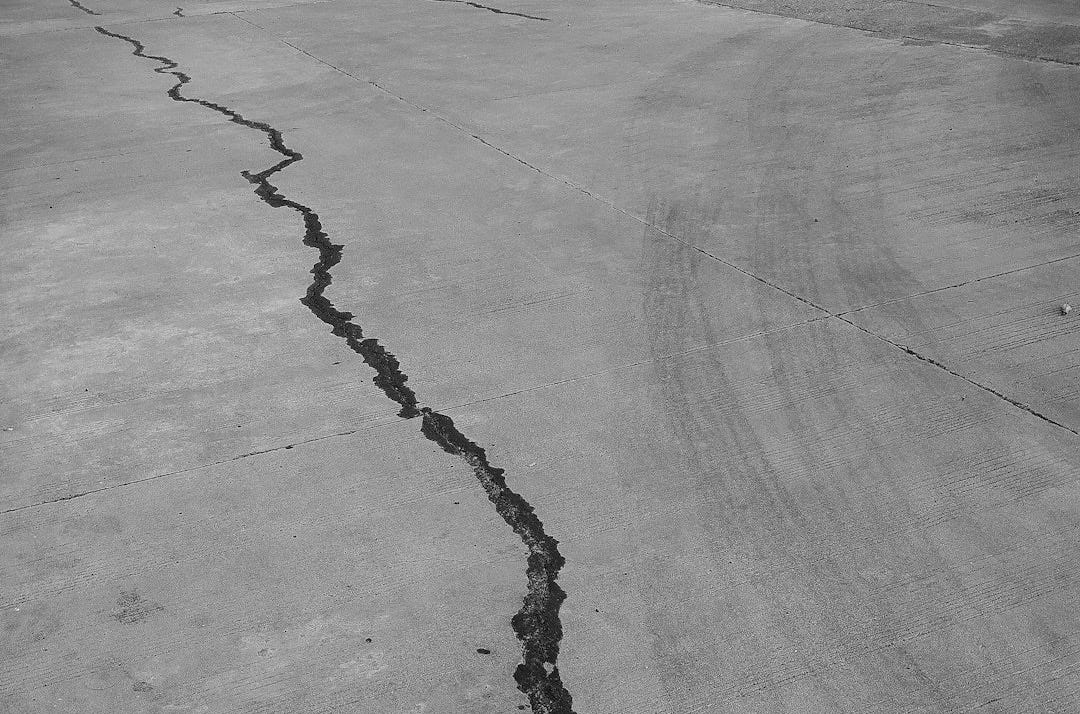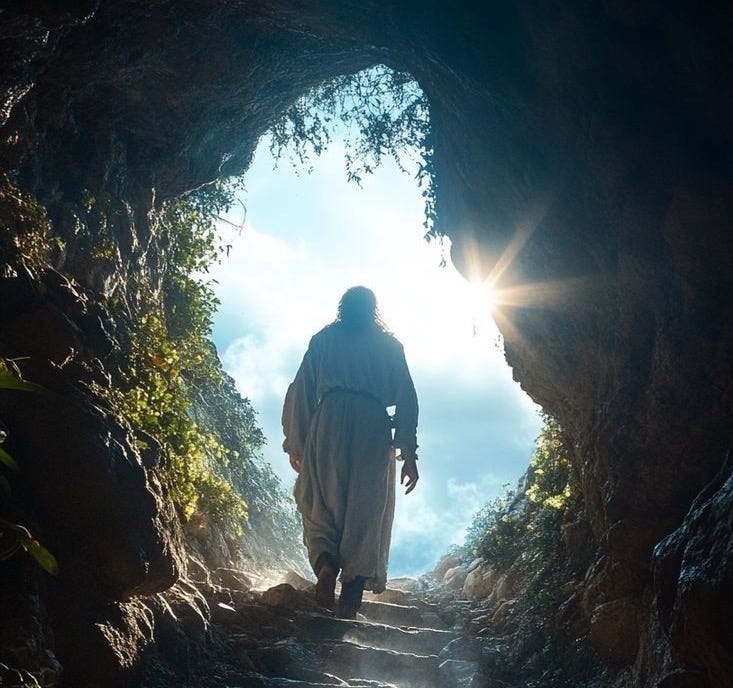Do You Remember Your First Time?
It’s time to feel the ground move again.
Do you remember your first time?
The moment it dawned on you that Jesus is alive—and risen from the dead?
I remember mine. I was turning seventeen. My dad had abandoned us, my mum was lost in depression, and I was trying to care for my baby brother while keeping us from losing our home. I’d open letters from the bank before heading to school, doing what I could to hold things together. It was a dark and lonely time.
Then, one evening, I went to church. I heard someone speak about Christ—alive, risen, present. And somehow, I knew it was true. I met Jesus that night. Gave my life to Him.
Nothing around me changed, but everything had changed.
Space and time seemed to open around me—or perhaps I was finally able to see how Jesus had been present all along, holding me in the midst of everything I faced. The challenges were still there, but He was with me in them. I still remember that first morning after I met Him, waking with a question that rose with my mind into waking consciousness and prayer: Lord, what do You want me to do with my life?
That’s what the resurrection does when it’s real. It breaks in and rearranges us. It’s not a metaphor meant to comfort or inspire; it’s the eruption of a new reality—one that overthrows every other power that has claimed us.
But I wonder—does it still arrest us like that? Has the reality of Christ’s resurrection lost its weight, its power to seize us with awe, with its sheer possibility and truth? Too often, I know it has for me. The risen life becomes a familiar idea, a doctrine to affirm—something safely removed from experience—when it was always meant to be the pulse of our existence.
Familiality breeds contempt

Over time, we’re prone to reducing the resurrection to moral and existential terms: a symbol of hope, a call to social justice, a story to inspire emotional resilience. We talk about Jesus as if He were mainly an example of how to live or love better. We use Him to steady our emotions, sanctify our politics, or decorate our spirituality.
And so, without meaning to, we turn the resurrection into something manageable—something useful. We make it serve us, rather than letting it undo and remake us. The Risen Christ becomes a resource, not the revolution of all things. I have done this to Him and more, despite my first encounter with Him.
Yet the early Christians knew otherwise. They weren’t comforted by resurrection; they were undone by it. It dismantled their worlds and rebuilt them from the ground up. Empire, family, death, power—all were suddenly reframed in the light of the One who had walked out of the tomb.
For the early church, everything flowed downstream from the resurrection—and from their lived encounter with it. Jesus turned their lives upside down, and in turn, they outlived, outdied, and ultimately reshaped the world around them.
Now, everything seems to flow the other way. Christ becomes our resource rather than our reality—a symbol for justice, an ethical example, a banner to baptise our politics, even a kind of spiritual genie to help us get the life we want. But He was never meant to be the means to our ends. He is the beginning and the end.
And perhaps therein lies a diagnosis of our condition. Has Jesus become for us a means to other ends, rather than being the End Himself? Do we now invoke Him as a kind of identitarian totem—a moral emblem to sanction our virtue, a political symbol to baptise our power, or a spiritual instrument to secure our desires? When Christ is reduced to utility, even sanctified utility, the living God is traded for an idol made in our own image.
Disturbing the disturbed

We know what it feels like when the ground gives way beneath us. COVID, climate change, war, migration, cost of living, identity politics—the fracturing of meaning and trust—all of it has reminded us how fragile our worlds really are. We live, as some call it, in a “metacrisis”—a convergence of breakdowns across every system we depend on. Strangely, our age is already an apocalypse, revealing the instability of everything we once assumed was solid.
So why does the resurrection no longer shake us like that?
How have we learned to live through every other kind of upheaval, yet remain untouched by the one that changed the universe?
At this disturbing moment in time, the resurrection should disturb us more so—it should recreate us. It is not simply hope for a better future and for things returning to what we preferred; it is the inbreaking of a new reality into the ruins of the current and the old. The early church knew this. They didn’t strip mine the resurrection for resources for daily life—instead, it became a new reality they lived from within.
Perhaps what we need most today is to be shaken again, not by catastrophe, but by wonder—to feel the ground move under our feet because Christ has risen. To stop using Him to stabilise our lives, and instead let Him make them entirely new.
To rediscover the resurrection is not to revisit a belief but to be drawn into a way of life. It is to see that the story of Jesus—His dying and rising—is not only His, but ours. We are folded into it by Him when we accept His invitation. Every loss, every joy, every longing becomes part of His recapitulation of all things in His life, death, and resurrection. The resurrection is not a past event to believe in, but a present reality to inhabit.
If Christ is risen, then nothing —not even death —defines us. Fear does not hold us. Our world, however fragile, is already being remade.
The invitation
The invitation is not to believe harder, but to belong deeper—to live as people who have already passed through death into life, whose hope is not an idea but a Person.
Maybe that’s where renewal begins again for us: in recovering the astonishment that God has not abandoned His world, but stepped into it; that love has walked through death and come out the other side.
Christ is risen.
And if that is true—if it really is—then everything, everything, must be rearranged around Him.
Right now—His heartbeat, His breath—Christ is risen and right here. Not hovering somewhere near, but closer than your own pulse, nearer than your next thought.
The risen One wants contact. He leans in, pressing His life into yours, reaching into the clutter, the ache, and the beauty of your days. He doesn’t stand at a distance; He inhabits your story. Every fear, every longing, every dream—He gathers them into His own wounded, resurrected life.
He wants to take your heart and mind, your soul and skin, your weary emotions and stubborn circumstances, and fuse them into the pulse of His death and resurrection.
Until you can whisper with Paul, not as theology but as testimony: I no longer live, but Christ lives in me.





Oh, Jason, yes, THIS. In our Bible study the other day, someone asked about this very topic: "What does it mean to have a personal relationship with Jesus?" You don't name it that, but that's exactly what you describe here. An intimate "knowing" and "being known." Thank you.